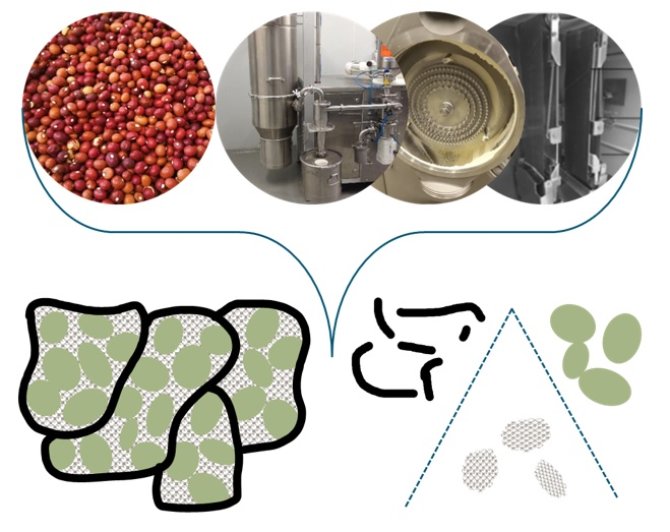
Project
Dry fractionation of oil rich crops
Given the current guidelines for sustainable development and the expected growth in world population, there is a demand for sustainable alternative protein sources to substitute animal-derived proteins within our diet. A well-known alternative protein source is plant protein. Hitherto, plant proteins are usually extracted from biomass material (e.g. legumes and grains) through wet separation processes, which use copious amounts of water and energy. We aim to develop sustainable dry fractionation technologies that require significant less water and energy.
In this PhD project, selected biomass materials are evaluated for their potential on dry fractionation using the combination of milling and air-classification or electrostatic separation. Characterisation of seed architecture guides the development of milling and dry separation processes. Special attention is paid to the role of oil in separation, as oil containing biomass is expected to be more difficult to fractionate using dry technologies that require milling. Design rules for milling, separation and further treatment of selected biomass materials are developed by using techniques like compositional analysis, particle size and shape analysis. The produced ingredient fractions are tested on functionality to steer the design of the fractionation process.
